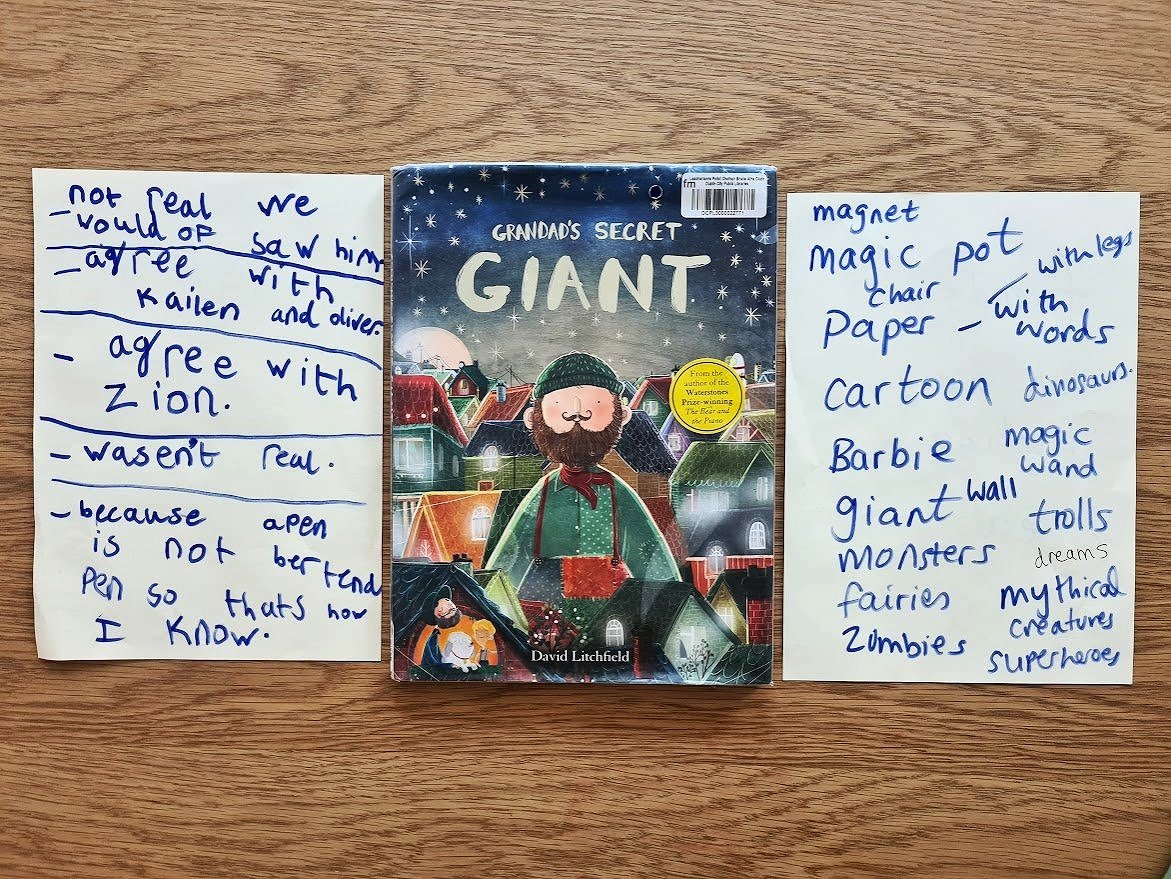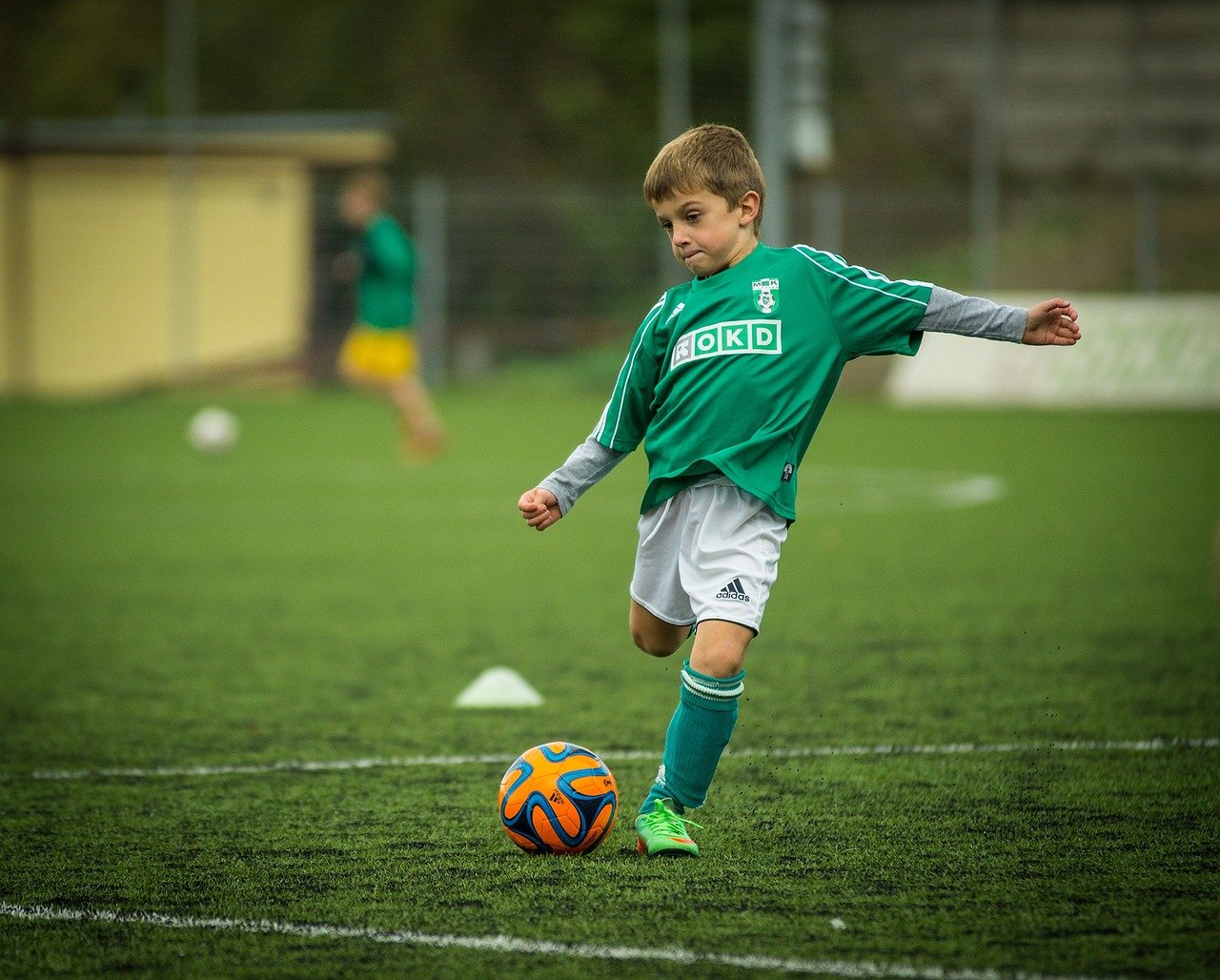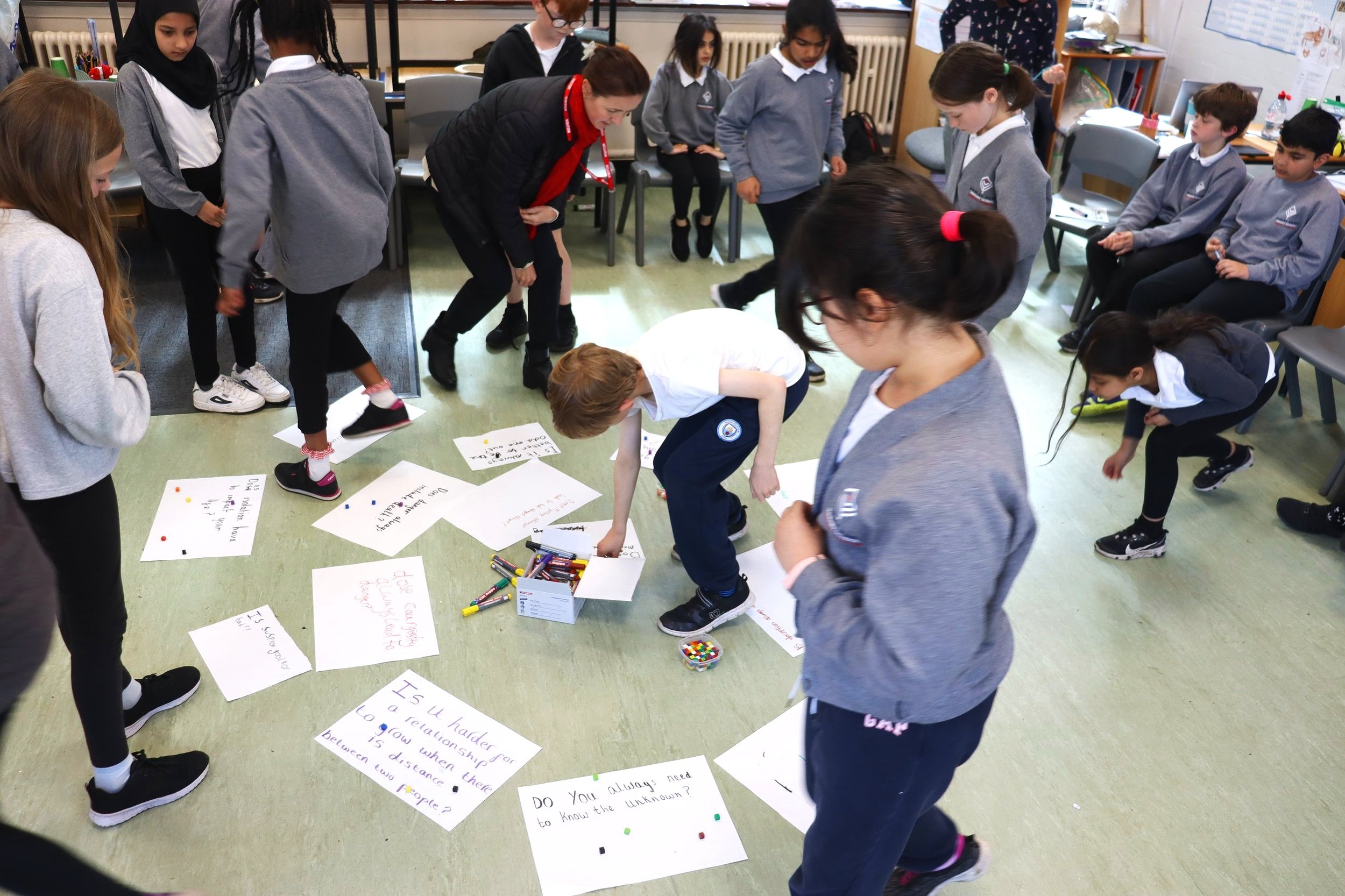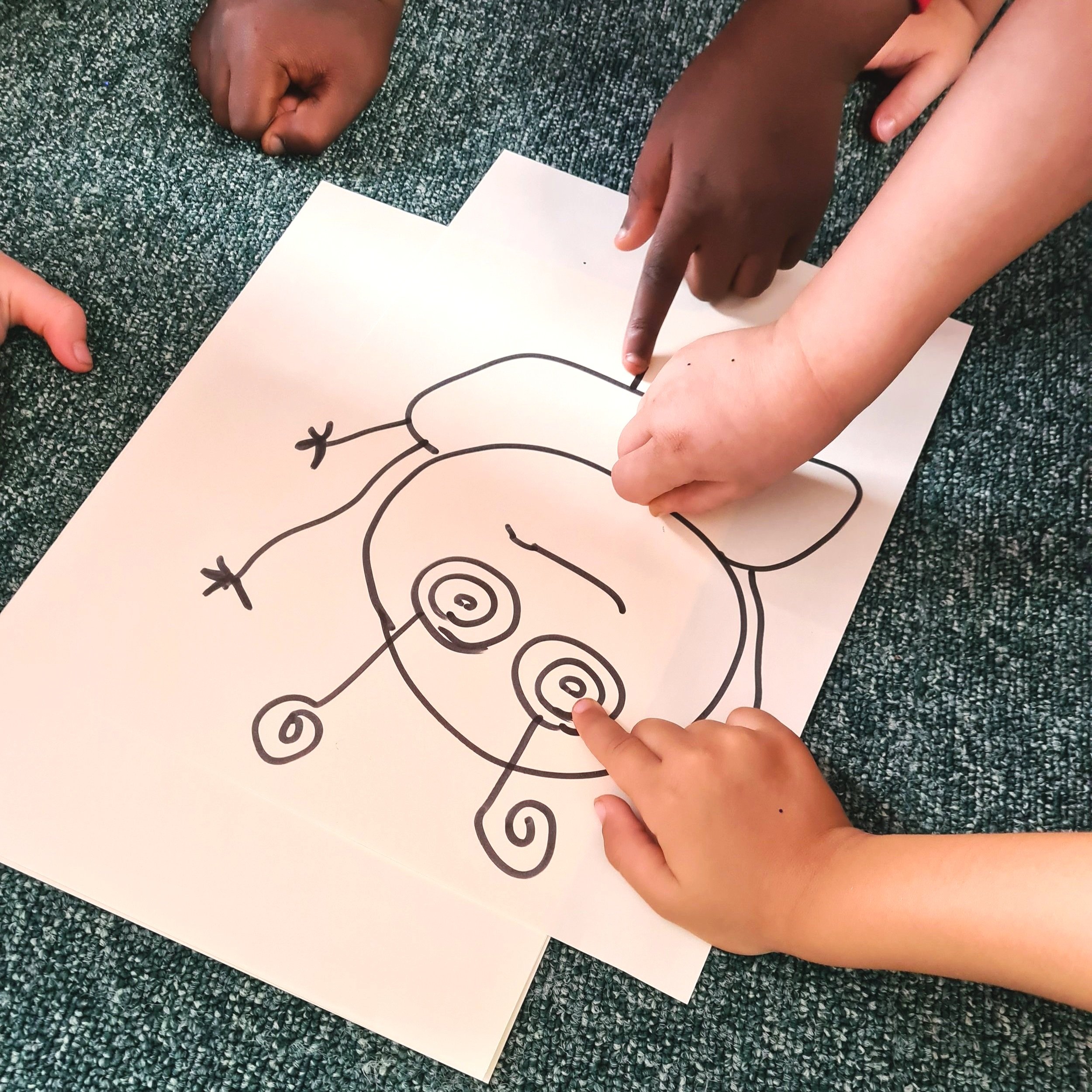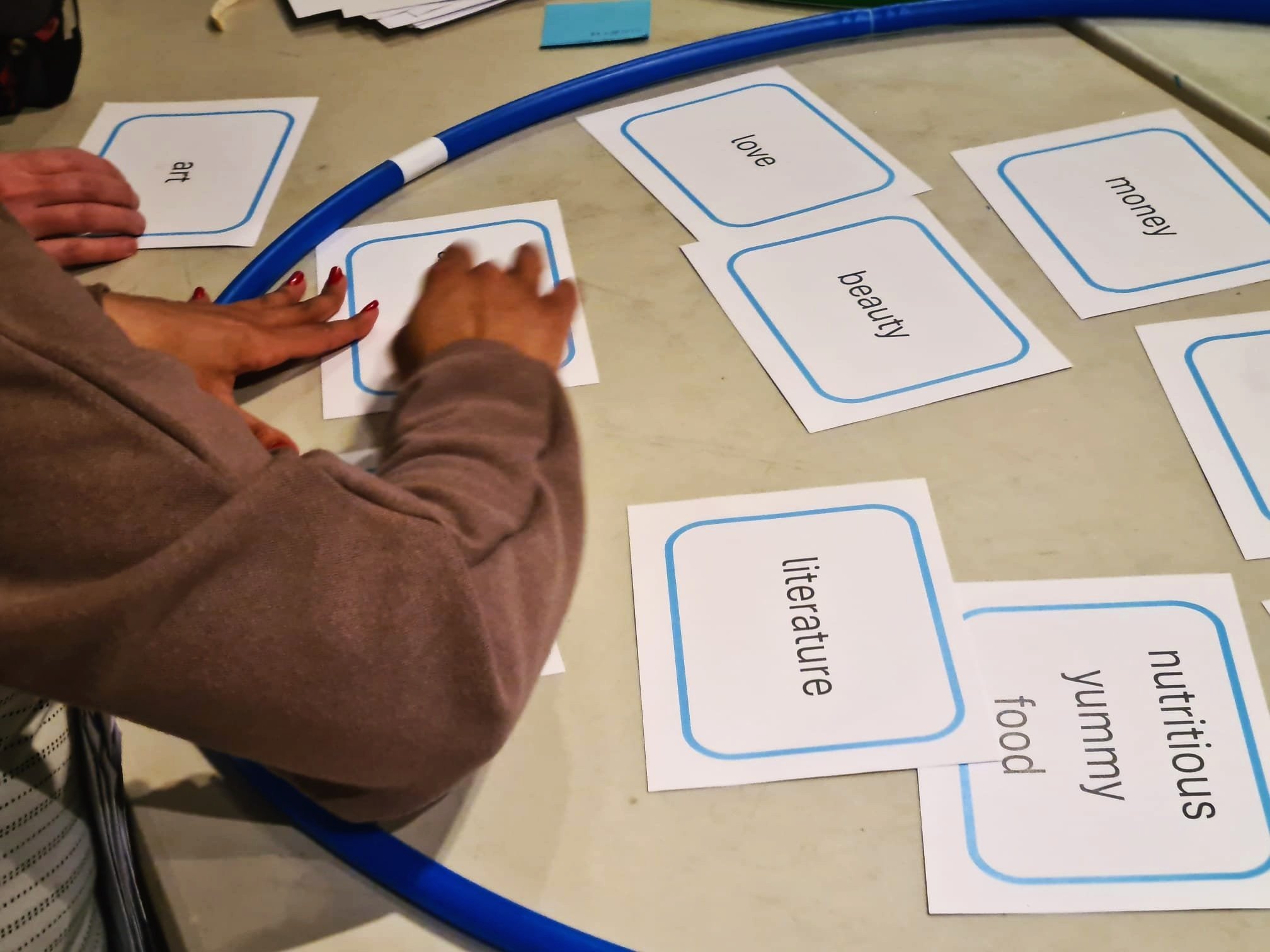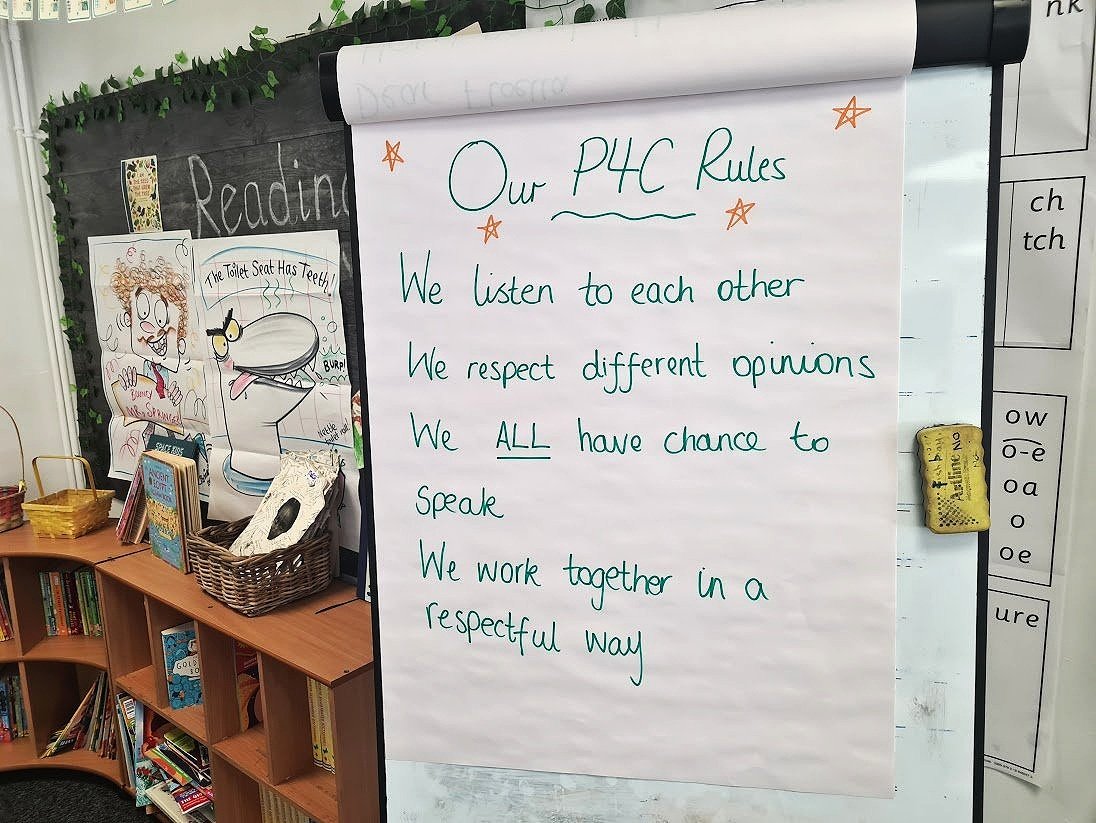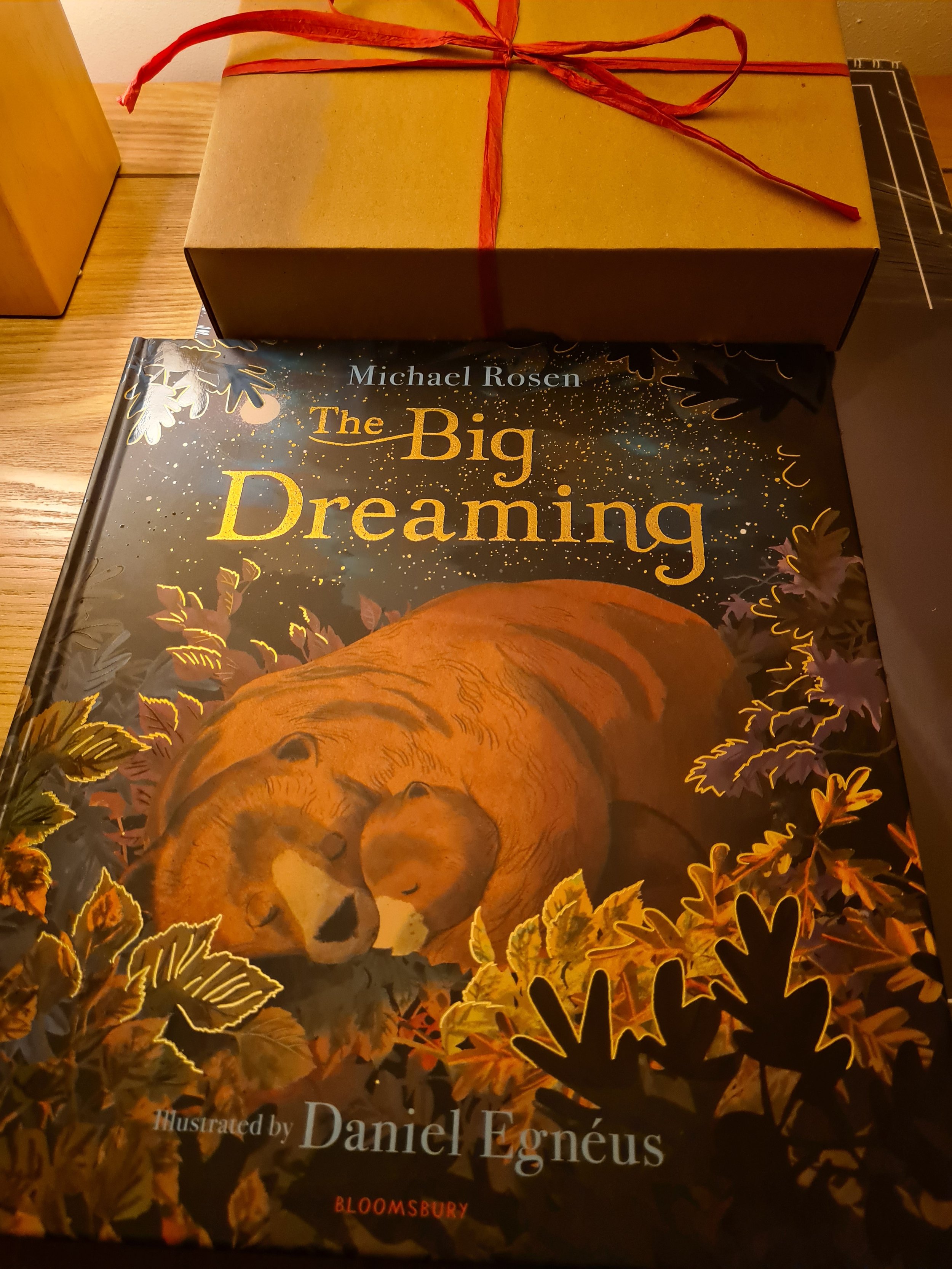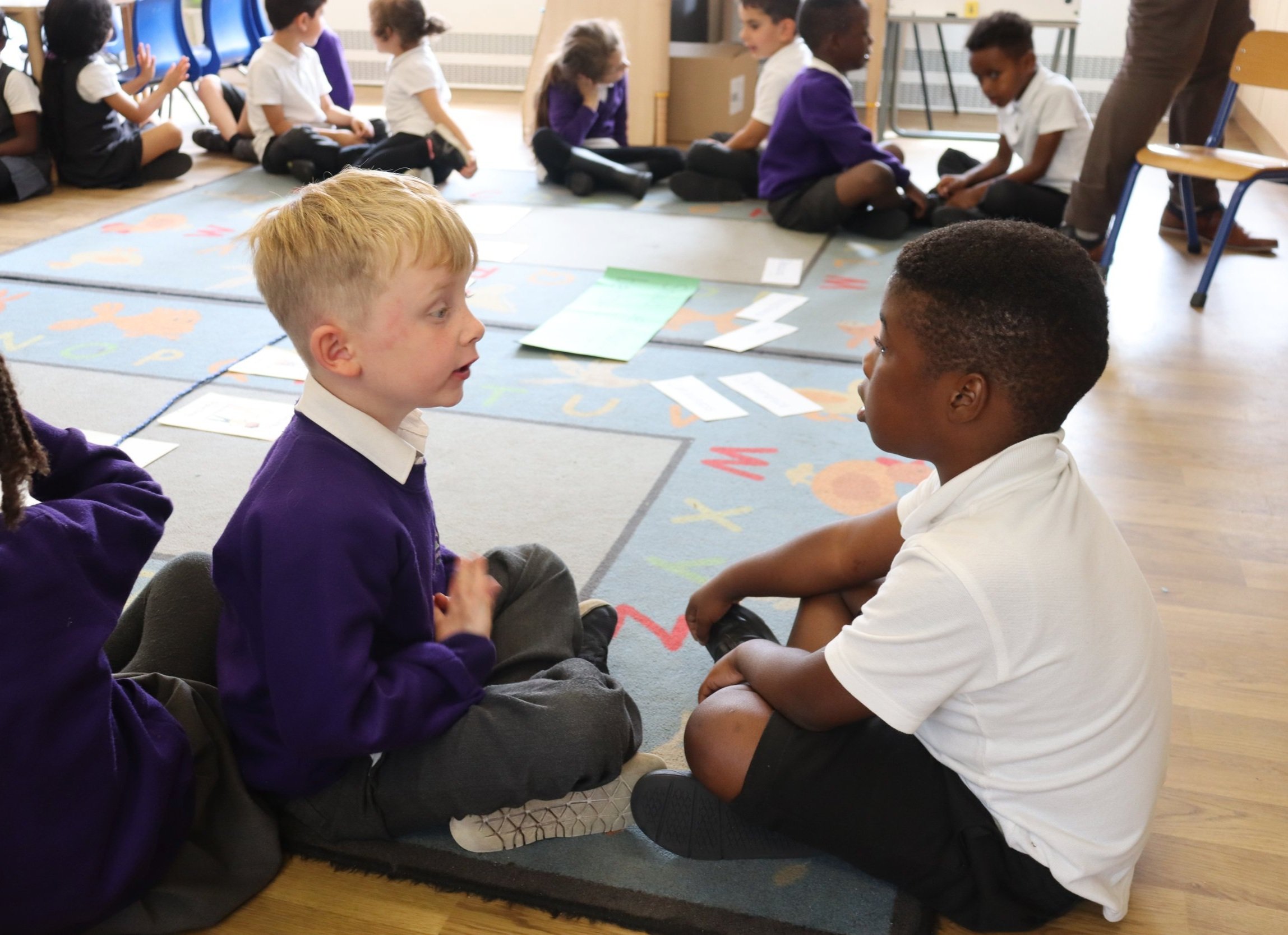
Imagine a classroom where students regularly ask big questions about things relevant to their lives and how they want to live. A classroom where pupils ask many probing questions of each other because they know it helps them learn – why, why do you think that, how do you know that, what’s your evidence, do you agree/disagree?
Imagine a classroom where children think creatively and realise there are many different perspectives and ways of thinking.
Imagine a classroom where students think critically – they test assumptions and check for evidence and sound reasoning.
Imagine a classroom where pupils think collaboratively – they listen to each other and make connections. They think with others to deepen and improve their own thinking, and work out solutions together.
Imagine a classroom where students are caring thinkers – they care about how they say things, about the impact of what they say, they care about learning more and going deeper.
Imagine a classroom where pupils express themselves clearly. Where they stand up for themselves and for others. Where they ask questions to learn more. Where every child is a confident, thinking communicator.
Philosophy for Children can give you this.
Lawrence the Lion and Maple the Meerkat tackle some philosophical dilemmas…
An example of using children’s wonderings to guide a philosophical discussion
Get your class thinking about fairness, teamwork, competition and more
Ways to keep everyone engaged and develop the community of enquiry
A detailed description including building, helping, sharing and working together
How to start a question, and think about whether or not it’s philosophical
How do they want to behave to become great 4C thinkers?


